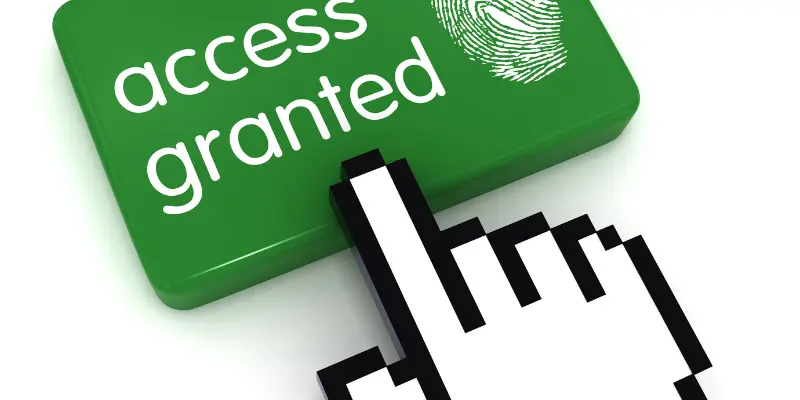Felons in New Jersey can access programs designed to help low-income residents afford basic needs like food, housing, and medical care. If you’re thinking about going back to school for a degree or certification, federal and state grants can cover most of the cost. You can also get solid support from reentry programs if you need more structured help while you get back on your feet.

SNAP Provides Money For Food
SNAP is one of the easiest grants in New Jersey for felons to qualify for and use. Eligibility for the Supplemental Nutrition Assistance Program is entirely based on your income, and payments are sent to your SNAP account at the beginning of each month.
If your income is low or nonexistent, you’ll qualify.
The income limit for a single person is $2,321/month, with maximum benefits of $292/month. Households with more members have higher income limits and larger monthly benefit amounts.
SNAP benefits can only be spent on groceries.
Check how much you could get: https://www.snapscreener.com/screener/new-jersey
Work First New Jersey
Work First New Jersey is the state program that handles the Temporary Assistance for Needy Families program (TANF) and the General Assistance (GA) program for residents without children.
Both programs have very low income limits, and are intended to help New Jersey residents with the greatest need. The qualifying income for a single person is $321 or less per month after allowable deductions.
The maximum payment for a single person is $214/month.
Apply for WFNJ: https://nj.gov/humanservices/wfnj/apply/
Housing Assistance Programs In New Jersey
Felons without stable housing can contact the Rapid Rehousing agency for their city or county. For longer-term housing support, applying for the Housing Choice Voucher Program is the best option.
Rapid Rehousing Program
Rapid Rehousing operates under a housing-first model, meaning your felony history or current substance use won’t disqualify you. RRH programs focus on stabilizing your situation. That could mean staying at a shelter or motel initially while your case manager works to find suitable second chance housing. Once housing is found, the program helps cover move-in costs like security deposits, utility deposits, and rent.
To connect with the agency running the RRH program in your area, call the free 2-1-1 helpline.
Housing Choice Voucher Program (HCV)
The HCV program helps you afford rent by capping your rent contribution at 30% of your income, with the program covering the rest.
The program requires a background check, and your felony record may affect eligibility, depending on your local housing authorities rules and the nature and age of your offense.
To qualify, you’ll need to make less than 80% of the median income for your area. In Newark, for example, that’s of an income of $72,950 or less for a single person.
Demand for vouchers in New Jersey is high, and most counties maintain waitlists that open only occasionally.
Find your housing agency: https://www.hud.gov/contactus/public-housing-contacts
Grants For Felons in NJ That Help Pay Utility Bills
New Jersey’s Low Income Home Energy Assistance Program (LIHEAP) helps residents pay for heating and cooling costs.
Income limits vary by household size. For a single-person household, an income under $3,991/month qualifies.
- Maximum heating grant: $1,278
- Maximum cooling grant: $1,278
Winter crisis grants are also available for households with overdue bills at risk of utility shutoffs. The maximum crisis grant is $800.
Apply for LIHEAP: https://liheapch.acf.gov/eligibility-tool
Free Cell Phone Plans
The Lifeline program funds basic cell phone service for low-income households. If you already get benefits like SNAP or Work First New Jersey, you automatically qualify. Otherwise, eligibility is based on income. For a single-person household, the income limit is $1,760/month, while a family of 3 can earn $2,998/month.
Plans include at least 1,000 minutes and 4.5GB of data, with some providers offering unlimited calls, texts, and larger data allowances.
Find a Lifeline provider: https://www.lifelinesupport.org/companies-near-me/
Free And Reduced Cost Health Insurance
New Jersey Family Care provides health insurance with no monthly premiums or copays for low-income residents.
New Jersey residents aged 19-64 with income up to 138% of the federal poverty level (about $18,754/year or $1,563/month for a single person) will qualify.
Apply for cover: https://www.nj.gov/humanservices/dmahs/clients/medicaid/
Modest Needs Grants
Modest Need grants help working people living just above the poverty line. Small grants, typically $750-$1,250, support individuals and families through temporary financial hardships like overdue rent, late utility bills, or uncovered medical expenses.
Apply for a Modest Needs grant: https://www.modestneeds.org/mn/for-applicants
Grants For College Or Trade School
Federal grants are available to low-income students and your felony won’t be a barrier. You may be eligible for a Pell Grant worth up to $7,395/year and the Federal Supplemental Educational Opportunity Grant (FSEOG) worth up to $4,000/year.
Federal grants: https://studentaid.gov/understand-aid/types/grants/pell
New Jersey residents can also benefit from for the Educational Opportunity Fund (EOF) which helps cover tuition at participating colleges, worth up to $3,050 per year.
New Jersey EOF: https://www.state.nj.us/highereducation/EOF/
Reentry Grants For Felons in New Jersey
Reentry grants for felons in NJ may be offered to felons enrolled in reentry programs. Depending on the program, grants may cover training, transportation, apartment move-in costs, or addiction treatment.
Programs like the New Jersey Reentry Corporation offer full, wrap around reentry services, including housing referrals, benefits assistance, job training, addiction recovery, healthcare, legal services, mentoring and more.
New Jersey Reentry Corporation: https://www.njreentry.org/
To locate other reentry programs in your area, call the free 2-1-1 helpline.
Continue Exploring: Government Grants For Felons in Missouri

Meet the driving force behind FelonAssistance.org, Wolf Matt. With a computer engineering degree, who specialize in societal impact